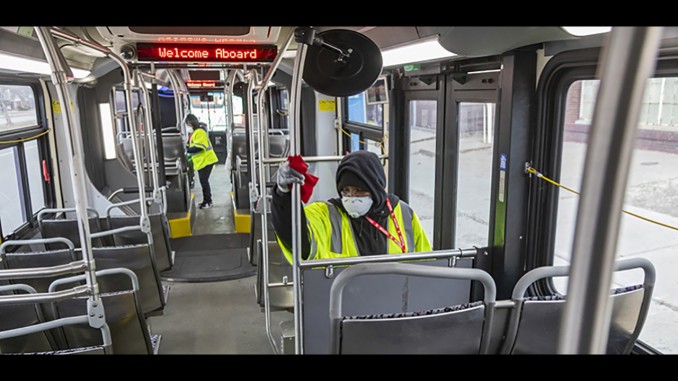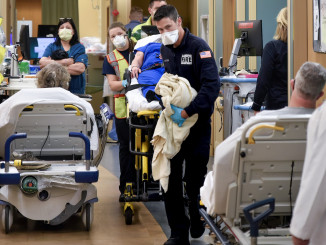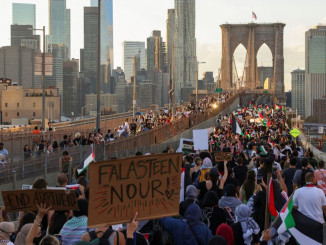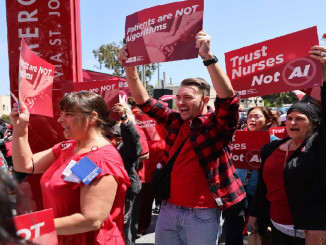
On October 2, at least 288 Detroit bus drivers pulled a wildcat work stoppage, striking for safety under pandemic working conditions. They returned to work within a few days, but their walkout highlights the unsafe conditions under which drivers continue to work.
This stoppage happened after a passenger refused to wear a mask, walked into the driver safety zone, then stood in a threatening fashion over the driver. The driver acted first and, after tackling and repeatedly punching the young man, was suspended for thirty days.
To some, that may sound unnecessarily aggressive. But we need to put the event in its context.
Glen Tolbert, president of the local drivers’ union, said drivers have seen “a rash of assaults,” weapons being pulled, females being accosted, drivers being attacked and not being able to defend themselves. “If I ask about a mask now I’m going to be abused verbally and sometimes physically…The membership just said they were tired… Neither the department nor the city was protecting them.”
He asked, “Do I have to wait for a punch and then react?…I don’t know if they wanted him to wait till he stabbed him or hit him. If someone is breathing in my face from two feet with no mask on….”
While a strike last spring led to safety advances for themselves and the public – free rides for the public, better cleaning measures, PPE and more open restrooms – the drivers and their safety have obviously not continued to be taken seriously. More than 50 drivers have been infected, one of whom died.
And of course, Detroit’s drivers, as with most essential workers, are severely underpaid. Hourly pay starts at only $13, with an average yearly pay of only $27,660! This event highlights the low pay as well as the undignified and dangerous conditions in which millions of essential workers do their jobs. Is it any wonder we’re stressed? Is it any wonder we get angry? Is it any wonder we organize and walk off the job?




